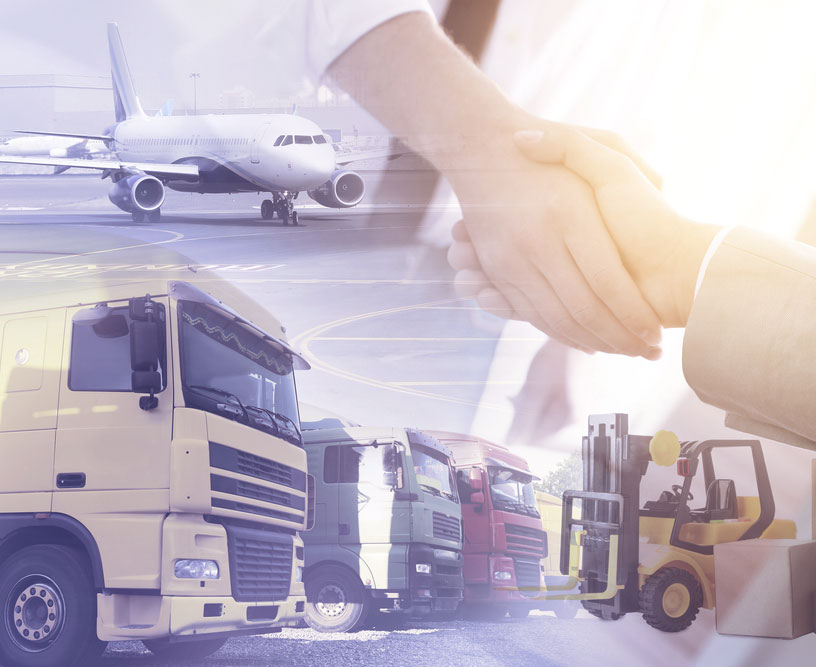London, one of the world’s leading logistics hubs, offers a wide array of transportation services to move goods within the UK and internationally. Two primary methods—air freight and road freight—play pivotal roles in keeping London’s supply chain agile, efficient, and responsive to business needs. At Sky & Moon Ltd (Sky Moon Services) we ensure the finest options in this regards, accordingly. So, if you’re considering either of these freight options for your shipping needs, this guide will help you understand the key advantages, differences, and when to use each.
-
What is Air Freight?
Air freight refers to the transportation of goods via airplanes, typically handled through airports. London is home to several key airports like Heathrow, Gatwick, and London Stansted, all of which are instrumental in facilitating air cargo transport. Air freight is often chosen for international shipments where speed and reliability are crucial, especially for time-sensitive goods like perishable items, electronics, or high-value commodities.
Key Advantages of Air Freight
- Speed: Air freight is the fastest mode of transportation. If you need to move goods quickly, particularly over long distances, air freight can deliver your goods in a matter of hours or days compared to weeks with other modes.
- Global Reach: Air cargo has a vast international network. No matter how remote a destination is, there is likely an airport nearby that can facilitate delivery.
- Security: Air freight often involves strict security measures, making it one of the most secure ways to transport valuable goods.
When to Choose Air Freight
Air freight is the best choice if your business requires:
- Urgent delivery of time-sensitive goods
- High-value products needing extra security
- Transport to far-flung global destinations
-
What is Road Freight?
Road freight is the movement of goods via road vehicles like trucks and vans. In London, road freight services are integral to the local and regional supply chain, delivering products to warehouses, retail outlets, and distribution centers. It’s highly effective for short to medium distances and is often used to transport goods from airports, ports, and train stations for last-mile delivery.
Key Advantages of Road Freight
- Flexibility: Road freight offers more flexible delivery schedules. It can easily accommodate different routes, schedules, and load sizes.
- Cost-Effective: For domestic shipments, road freight is often the most economical choice, particularly for bulky or heavy goods.
- Door-to-Door Delivery: One of the major advantages of road freight is that it provides direct delivery to your specified address, cutting down on handling and the risk of damage during transit.
When to Choose Road Freight
Road freight is ideal for:
- Short to medium-distance deliveries within the UK or nearby European countries
- Large, bulky, or heavy goods that would be costly to move via air
- Deliveries requiring flexible pick-up and drop-off locations
-
How Do Air Freight and Road Freight Complement Each Other?
In London, businesses often use a combination of both air freight and road freight to optimize their supply chain. For example, goods can be flown into Heathrow or Gatwick airports and then transported via road to regional distribution centers or final destinations. This combination ensures faster international shipping while maintaining cost-effective domestic distribution.
-
Factors to Consider When Choosing Between Air Freight and Road Freight
Whether you should choose air freight or road freight depends on several factors:
Delivery Time
- Air Freight: Ideal if you need your goods delivered urgently, especially for international shipments.
- Road Freight: Suitable for less time-sensitive goods that need to be transported domestically or across shorter international routes.
Cost
- Air Freight: Typically more expensive due to the speed and security it offers.
- Road Freight: More affordable, particularly for domestic or regional transportation.
Type of Goods
- Air Freight: Best for smaller, high-value, or perishable items that require quick transit.
- Road Freight: Works well for large, bulky items that would be more expensive to ship by air.
Environmental Impact
- Air Freight: Has a higher carbon footprint compared to road transport due to the fuel consumption of aircraft.
- Road Freight: Generally has a lower environmental impact, though this can vary depending on the distance and efficiency of the vehicles used.
- London’s Freight Infrastructure
London is well-equipped to handle both air and road freight thanks to its extensive transport infrastructure. Key airports like Heathrow are global leaders in air cargo, and London’s road network is well-maintained, offering easy access to major UK cities and European destinations. Additionally, London has multiple freight forwarding companies that specialize in both air and road logistics, ensuring businesses can find tailored solutions to meet their shipping needs.
- The Role of Freight Forwarders
Freight forwarders in London offer a comprehensive service that helps businesses manage the complexities of shipping. They act as intermediaries, handling the logistics, customs clearance, and documentation required to ensure smooth transportation. Whether you opt for air or road freight, a good freight forwarder can help streamline the entire process, saving you both time and money.
Conclusion
Air and road freight play significant roles in London’s logistics landscape. While air freight is the go-to choice for speed and international reach, road freight offers flexibility, cost-effectiveness, and ease of access for domestic deliveries. By understanding the advantages of each, businesses can make informed decisions (just like Sky & Moon Ltd) based on their specific shipping needs. Combining both methods, when appropriate, can help optimize the supply chain, ensuring timely and efficient delivery of goods in and out of London.
Whether you’re shipping internationally or domestically,
Smart logistics and transportation. Handshake for successful of investment deal teamwork and partnership business partners on logistic global network distribution. Business of transport industrial.’s freight options are designed to meet your logistical needs with precision and efficiency.

